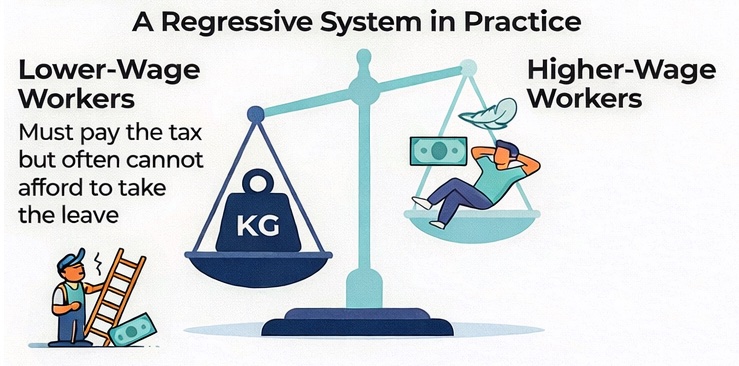Greg Devereux, Executive Director of the Washington Federation of State Employees (WFSE), recently revealed he, and other union executives, believe the era of forced unionism for public sector workers is coming to an end. And surprisingly, he doesn’t think it will be the union-crippling catastrophe unions have long-claimed.
Speaking to the Washington State Labor Council Convention last week, Devereux says the pending Freidichs v California case in the U.S. Supreme Court, “may force change that we’ve needed for a long time, but I don’t think that’s a bad thing necessarily.”
The landmark Freidichs case was filed by California teachers who argue the compulsory union dues they, and other public employees, are forced to pay, are unconstitutional. If the Court rules in favor of Freidichs, individual teachers and other state employees will have the right to decide for themselves whether to join and support a union. Forced unionism for public workers will be illegal. The Court will hear arguments in the case in December, with a decision expected by June 2016.
Devereux admits the outcome of Freidichs for organized labor and the policy of forced unionism likely won’t be in unions’ favor:
Most AFL-CIO in-house councils predict the current court will at a minimum rule that non members covered by our contracts, what have been referred to as fee payers or free riders, will no longer have to pay a fee for our representation services.”
In making this admission, Devereux incorporates the usual rhetoric-laden railing against the union-busting movement in his speech. But he quickly switches gears to deliver a surprising message that right-to-work supporters have been making for decades.
Rather than continue to bemoan the impending demise of forced unionism, Devereux instead urges his union colleagues to “see Freidrichs as an opportunity.” He believes many members are disconnected from the union because they often don’t see union representatives in their workplace, fighting for their interests and solving their problems. A U.S. Supreme Court ruling ending compulsory unionism would force labor to “internally organize in a way we never have before” to demonstrate to workers “the value and power” of unions:
This is not rocket science, we know first hand that when members see the power of the union in action solving their problems in the work place it moves people to remain members.”
Devereux reminds the audience that the WFSE union was built over the past 60 years with no public sector collective bargaining law that forced members to join and pay dues. It has only been since 2002 that the union gained the right to collectively bargain wages and benefits on behalf of state workers. Of course, since that legislatively protected expansion of forced unionism, the WSFE union has doubled in size.
We’ve been quite successful for decades without legislative underpinnings. We’ve learned over time to not only survive but to thrive despite the odds. Today is no different.”
Right-to-work advocates have long argued that both unions and workers benefit from right-to-work laws that prohibit compulsory unionism, precisely because such laws force unions to do the very best job possible for its members. Workers benefit from unions working as hard as possible on their behalf, and unions benefit because they become stronger as they are forced to become more efficient and more responsive to their members.




